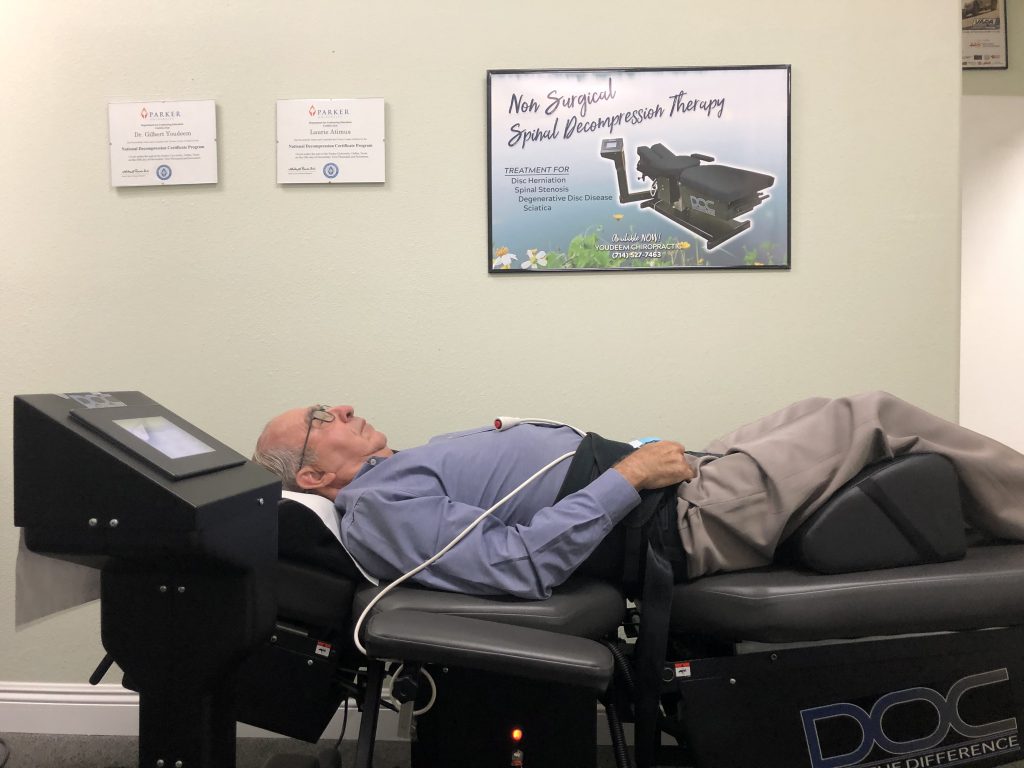Posts by Dr. Youdeem
The Hidden Advantages of Disc Decompression Over Traditional Surgery at Youdeem Chiropractic
Discover the superior benefits of disc decompression in our insightful blog ‘The Hidden Advantages of Disc Decompression Over Traditional Surgery’.
Read MoreShockwave Therapy vs. Traditional Treatments: What You Need to Know
Discover the differences between shockwave therapy and traditional treatments in our blog, ‘Shockwave Therapy vs. Traditional Treatments: What You Need to Know’.
Read MoreA Good Walk Even Once a Week Has Longevity Benefits.
Using data from the United States National Health and Nutrition Examination Survey, researchers report that logging 8,000 steps just one day a week can lower the risk for early death by 15%. Neurology, March 2023
Read MoreSerious Pediatric Mental Health Issues in Kids Has Increase in the Last Decade.
Between 2009 and 2019, the number of children hospitalized for mental health-related issues in the United States increased 26%. During the same time frame, the rate of attempted suicide, suicidal ideation, and self-injury a
Read MoreBack Surgery Is Not for Everyone.
In a recent paper published in the Medical Journal of Australia, the authors noted that while spinal surgeries have increased over time, the current data does not support surgical intervention for low back pain outside of cases of lumbar radiculopathy that doesn’t respond to non-surgical care and when low back pain is associated with cancer,…
Read MoreStrength Training Can Reduce Blood Pressure.
A recent literature review concluded that just eight-to- ten weeks of strength training is sufficient to reduce systolic blood pressure by 10 mmHg and diastolic blood pressure by 4.79 mmHg. Researcher Dr. Giovana Rampazzo Teixeira explains, “In clinical practice and gyms or fitness centers, strength training can be a treatment option for people with high…
Read MorePregnancy and Proper Nutrition.
Dietary assessments of 2,450 women during pregnancy revealed that 90% did not consume adequate nutrients via diet alone. Furthermore, researchers note that nearly all affordable dietary supplements do not contain the appropriate doses of key nutrients to make up for these deficiencies. Lead author Dr.Katherine Sauder writes, “This research will inform pregnant patients and their…
Read MoreAsthma and Eczema Increase Arthritis Risk.
Following a review of data concerning nearly 1.4 million adults, researchers report that individuals with either asthma or eczema are up to 58% more likely to develop osteoarthritis, and the risk is even greater for those with both conditions. Annals of the Rheumatic Diseases, March 2023
Read MoreTips for Preventing Falls Among Older Adults.
The Mayo Clinic reports that 1-in-4 seniors fall every year, which can dramatically affect their ability to remain independent. To reduce the risk for falls, the Mayo Clinic recommends the following: keep clutter off the floor; secure throw rugs to the floor or remove them; keep stairs and walkways clear; and clean up spills right…
Read MoreDepression May Be Risk Factor for Cardiovascular Disease.
Among a group of 1,028 adults whom researchers monitored for more than five years, those with more severe anxiety and/or depressive symptoms were more likely to be diagnosed with cardiovascular disease, even after adjusting for traditional risk factors. Journal of Affective Disorders, May 2023
Read More


